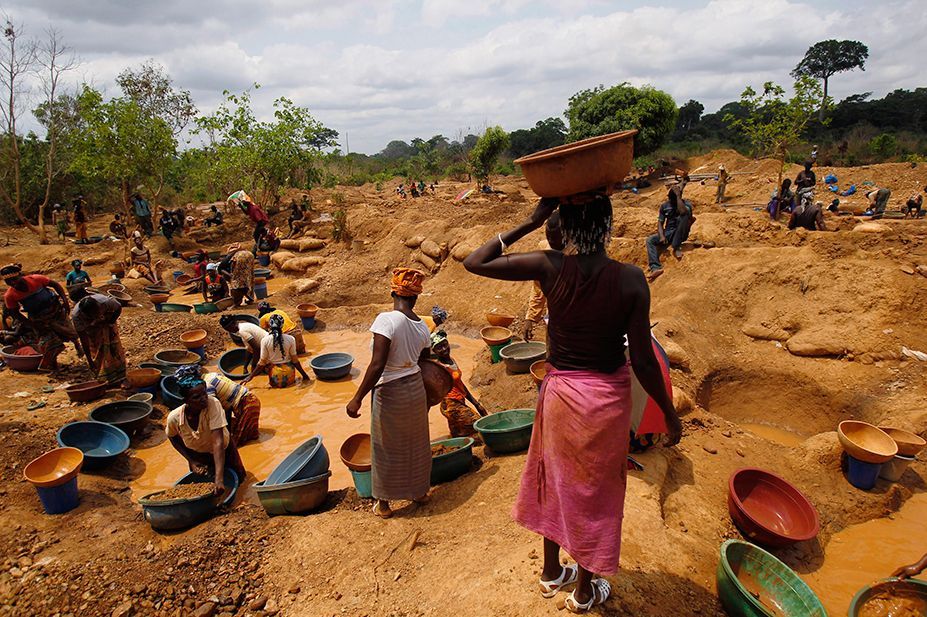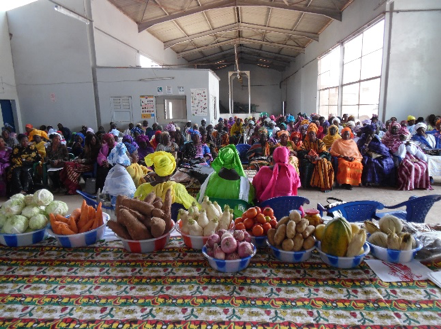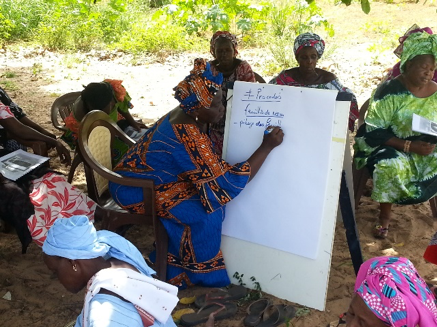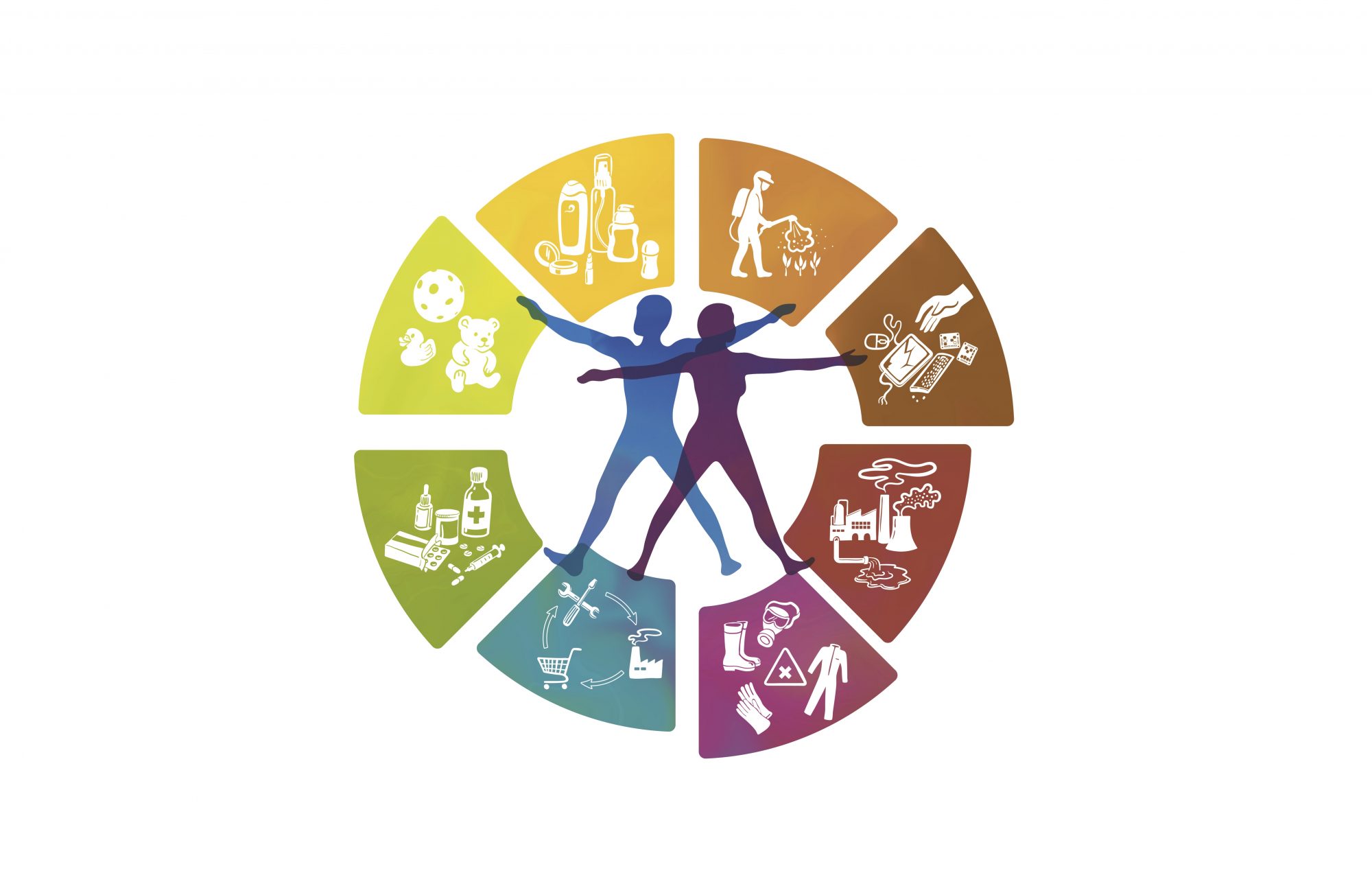#Expert – Blog series: How to create a gender-just healthy planet
by NDEYE Maïmouna DIENE
Gender and chemicals
Metallurgical, pharmaceutical, veterinary, cosmetics, agro-food, photographic reproduction, plastics and rubber industries… and also the sectors of agriculture, mechanics, automotive and aeronautics, construction, textiles, electronics and in many other sectors of production, trade and services, in multiple SMEs and large enterprises, chemicals are present in all sectors of activity, even though this is often ignored by those who handle them.
The issue of gender and chemicals is poorly addressed in national and international anti-chemical programs and policies. Why is there a special interest in these questions? Because understanding the gender dimensions of health impacts of chemicals and determining how gender roles and occupations influence exposure to chemicals has become a human rights issue.
From agriculture to gold panning, women’s exposure to chemicals is a real fact

Recall that for several decades, chemicals have been used in virtually every sector. Over the years, it has been recognized that chemicals have a wide range of adverse effects, ranging from health hazards such as cancers and physical hazards such as flammability to environmental hazards such as widespread contamination or toxicity for aquatic life.
In many developing countries, women’s work is essentially devoted to agriculture. Agriculture uses large quantities of artificial chemicals as fertilizers, insecticides or herbicides and as regulators of plant growth. For example, in Senegal, rural women represent more than 52% of the population (National Agency for Statistics and Demography, ANSD, 2009) and they are mainly active in the agricultural sector. In phytosanitary treatments, they use large quantities of pesticides.
However, the health effects of pesticides have mainly been studied in male populations of farmers and farm workers. Hence there is a lack of knowledge of the effects on women, and of exposure routes other than occupational exposure itself, during the preparation of the mixture and its application.
According to the literature, exposure of women to pesticides would increase the risk of reproductive disorders, later translation disorders. A report published on July 2, 2010 by CHEM Trust points out that some studies show an increased risk of cancer in children when the mother is exposed to pesticides.
Many workers in gold panning activities are women. They participate in large numbers in artisanal mines, ranging from 40% to 50% in the sector as a whole, reaching up to 90% in some areas, usually gold-bearing (African Center for Mining Development, 2016); and they perform various functions in gold washing and ore processing, as well as in work related to goods and services.
Artisanal mining can have significant health effects: it can cause respiratory diseases (cough, pneumonia, angina…) due to the inhalation of dust and often fatal accidents, due to archaic mining techniques (Artisanal Gold Mining, 2015).
PAN Africa’s experiences, challenges and successes in mainstreaming gender in its projects
PAN Africa began in the 1980s the fight against inequalities between men and women specifically in the field of chemicals and especially pesticides. Thus, PAN Africa in collaboration with partners at national and international level developed programs and projects that have always taken into account the issue of the integration of gender and chemicals. Initiatives were taken and consisted in working with women’s associations and groups from Senegal, Mali, Benin, and elsewhere.
Projects and programs have been focusing on awareness raising, capacity building and advocacy for gender mainstreaming in chemicals. Thus, as part of its Funding Leadership and Opportunities for Women (FLOW) program funded by the Netherlands between 2012 and 2016, PAN has worked to strengthen women’s capacities on gender, leadership and advocacy issues, chemicals and sustainable agriculture. The Rural Women Empowerment Program (http://www.pan-afrique.org/departen.php) is a good example of training on gender issues and chemicals.
For a better consideration of gender in chemicals, PAN Africa with the support of the Marisla Foundation, is implementing since 2012 training activities for women farmers on agro-ecological practices for a reduction in the production and use of pesticides, reducing the exposure of women to pesticides. The project also sought to raise men’s awareness of the importance of women in agro-ecology and the search for alternatives to synthetic chemical pesticides.
PAN Africa in collaboration with the Government of Senegal in the framework of the Minamata Initial Assessment (MIA) also carried out information and awareness activities on the issues of exposure of women and children in the artisanal mining sites in Senegal but also on gender issues.


Women’s empowerment on gender issues and chemicals is not well developed. It is in this context that PAN Africa, with the support of the Global Environment Fund, has granted funding to a group of women who have conducted training activities on gender, POPs and alternatives to POPs in Senegal.
From my point of view, advocacy actions are needed in order to make SAICM and conventions such as Stockholm, Minamata and Basel more serious about gender. It is more than urgent to develop programs and set up specific funds for gender and chemicals issues. The momentum has certainly begun, yet timidly. I hope that concrete actions will be implemented in the years to come.
Author
 NDEYE Maïmouna DIENE is the regional coordinator of the Pesticide Action Network (PAN) Africa, located in Senegal. She is specialized in Ecosystems and Environment and also engineer of Sustainable Development, Health, Environment, Territory and Society. Ms. DIENE has extensive experience working on environmental and social issues related to chemicals, their health impacts and warning systems and prevention of health risks and also a strong background in women’s empowerment, gender and chemicals.
NDEYE Maïmouna DIENE is the regional coordinator of the Pesticide Action Network (PAN) Africa, located in Senegal. She is specialized in Ecosystems and Environment and also engineer of Sustainable Development, Health, Environment, Territory and Society. Ms. DIENE has extensive experience working on environmental and social issues related to chemicals, their health impacts and warning systems and prevention of health risks and also a strong background in women’s empowerment, gender and chemicals.
More information about PAN Africa and their work you can find on their website: http://www.pan-afrique.org/ or you can contact them via e-mail: panafrica[at]pan-afrique.org
